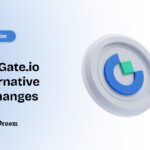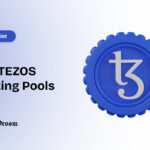Facebook (now Meta) had proposed to integrate the ‘Libra’ stablecoin into its services, which at the time, seemed to have the potential to combine the promise of cryptocurrencies with the might of Facebook’s awesome social media network.
Zion is a Bitcoin-based social network, built within the Web5 framework that offers a mobile app on which users can post content like videos and memes, add comments, join communities, send encrypted messages, and access a non-custodial Bitcoin Lightning wallet.
While on Steemit.com one receives a ‘STEEM’ cryptocurrency in return for writing articles or posting comments; at Wildspark.me one is rewarded for discovering the next big YouTube video. You do understand what I’m getting at right? Well, this shows that blockchain technologies have an undeniable influence on the development of today’s Social Media Networks.
What Problems Are Zion Addressing?
Social Networking has reshaped the way people interact with each other and exchange content and information through the Internet across the globe. We understand that blockchain is built upon provenance, immutability, and distributed consensus, isn’t it?
Blockchain is said to be fashioning the decentralized peer-to-peer communication process, and so some technologists believe that it can resolve the current challenges existing with Social Networking Sites.
Obsidian Messenger, Nexus, Indorse, Synereo, Steemit, and Akasha applications are some of your “go-to” instances where technologists have already started exploring the possibilities of utilizing blockchain in the avenues of social networking.
In the current scenario, content aggregation is mostly run by companies serving as trusted third parties to process content distribution across the web. While the system works well enough, it still suffers from some inherent weaknesses such as: the lack of a trust-based model, single points of failure, and a lack of financial transparency. Do we agree on this?
This brings us to the advantages of using blockchain for social networking; some of them being:
The User Is Not the Product
Because, in a blockchain-based social network like Zion, the user information, including text, images, and videos is not utilized for advertising and marketing purposes. The nodes participating in the validation process can get rewards from the cryptocurrency bolstering such platforms.
Enhanced Authority of Users over Their Content
Well beyond any doubt, in the absence of centralized administration, there is no single entity controlling the content produced by users.
Better Security
Irrespective of the fact that the major SNSs have end-to-end encryption, the metadata exchanged with the messages can still be eavesdropped by third parties. On the other hand, in addition to securing user data through encryption, blockchain’s decentralized and distributed ledger technology enhances user’s privacy and anonymity.
Zion launched its first version in August 2021 focusing on helping people have an open conversation in a safe & secure manner online. The Zion team shared their v2 vision in June 2022, adding new technical features. Zion v2 would use a Decentralized Web Platform from Block, Jack Dorsey’s company, formerly called Square, and is set to be built in Web5.
According to the official press release, Zion v2 is an improvement of three core elements that are currently broken on the centralized web.
- Identity
- Messaging & Data Storage
- Payments using the Bitcoin Lightning Network
Social Media Built on the Bitcoin Lightning Network
Zion’s Web5 Architecture is built through the utilization of DIDs, DWNs, and Bitcoin Lightning Network. Let’s break it down, shall we?
Decentralized Identifiers (DIDs)
Your user identity, i.e. the way you log into a platform or network, is centralized currently. But think about what happens if the platform you’ve built a following on shuts down as Blab or Meerkat did. It all comes down to nothing – you lose everything you’ve built.
Well, the World Wide Web Consortium (W3C) has recently approved a new type of identifier—Decentralized Identifier or DID that tweaks this above-mentioned scenario.
Zion utilizes the DID method to act as a person’s identifier. Decentralized Identifiers allow for verifiable and decentralized identities and can operate without the need for centralized registries so that we can verify without the need for a trusted third party.
Thus, with DID methods such as the DID:ION Method, the Zion network paves the way for you to own all aspects of your identity.
DroomDroom had a conversation in Singapore at the Token2049 event about the future of decentralized databases in the Web3 ecosystem.
Decentralized Web Node (DWN)
Consider this real-life situation, alright? You send a video to somebody from your iPhone through iMessage or Instagram, then that video probably lives in the cloud, on your phone, and the recipient’s phone. It obviously makes it easy to find that video but in a decentralized world, where does all that data need to be stored?
According to TBD, the Bitcoin-focused unit of Block, former Twitter CEO Jack Dorsey’s payments company, Web5’s pillars consist of DIDs, verifiable credentials, and DWNs.
DWNs are a data storage and message relay mechanism where users can store their data, including social media platforms, financial data, and contact information. Owners of a DWN choose what information is public or private through DID authentication.
These storage units are controlled by users rather than different entities which means there’s no need for platforms, such as Facebook or Twitter to have access to users’ public and private data.
As per the official sources, DWN is a draft specification under development within the Decentralized Identity Foundation (DIF) – yet to be recommended for usage by W3C.
Bitcoin Lightning Network
With Bitcoin’s scalability issues, the smaller transactions were able to congest the blockchain. Its Lightning Network was introduced to fix that.
So what is Bitcoin Lightning Network (BLN), you ask? Well, BLN is a peer-to-peer payment network that uses invoices generated by the recipient instead of addresses. BLN leverages payment channels anchored on the Bitcoin blockchain to enable near-instant settlement of BTC between participants at a low cost.

One of the primary functions of the Zion app is payment to the community. Zion users and creators can use community forums to share content, discuss ideas, and get paid for what they contribute and can instantly transact across borders.
All payments utilize Hash Timelock Contracts (HTLC) – a smart contract used in blockchain applications where the person receiving the funds in a transaction has to perform two actions to access the funds: enter the correct passphrase and claim payment within a specific timeframe.
The need for technological innovations to create a meaningful impact is more than ever and one such framework is Decentralized Autonomous Organizations (DAOs).
Conclusion
Jack Dorsey’s TBD came up with the name Web5 by adding Web3 to Web2 (Web4 is simply an addition to Web3 that offers a seamless wireless connection worldwide.) Web5 users store and control their data on decentralized web nodes and do not use tokens or smart contracts to function, very much unlike Web3.
The most exciting part about the Zion app is its true peer-to-peer network as the data produced on this app isn’t stored in any central server but is owned solely by the user. Also, as discussed above this blockchain-based network is not only cutting out the manipulation of algorithms but with a decentralized node it has a secure, private server, accessible only by your private key, giving people full custody over their data.
Zion is creating a new layer of the creator economy by building a decentralized social network on top of a monetary network and it’s a game changer because every single piece of content in this social media app is an active opportunity for payment; instead of Likes and Hearts, people will reward the creators with Satoshis.




















